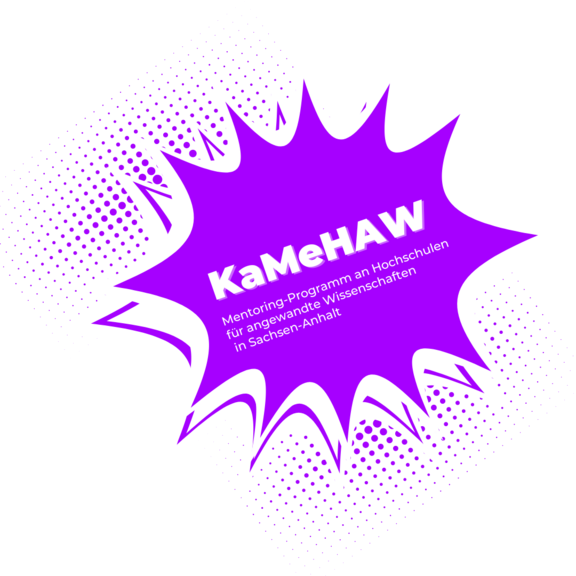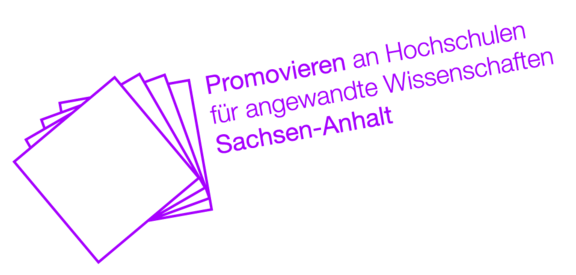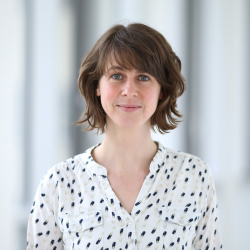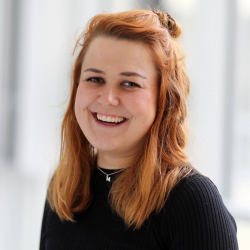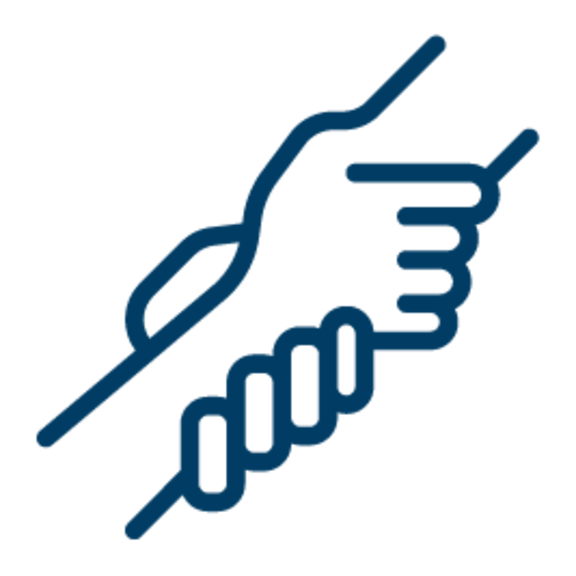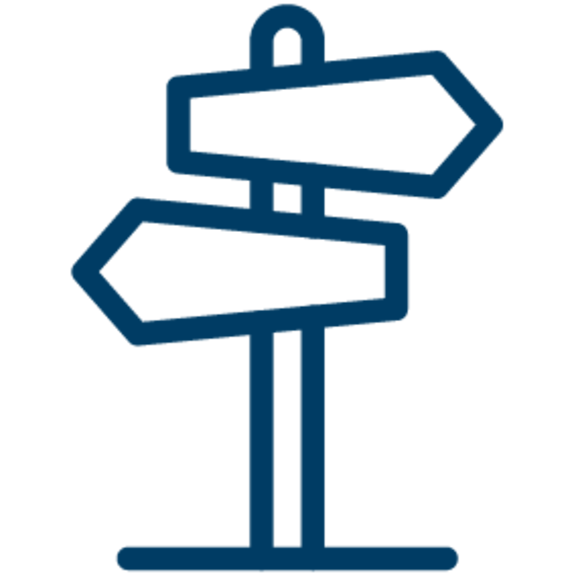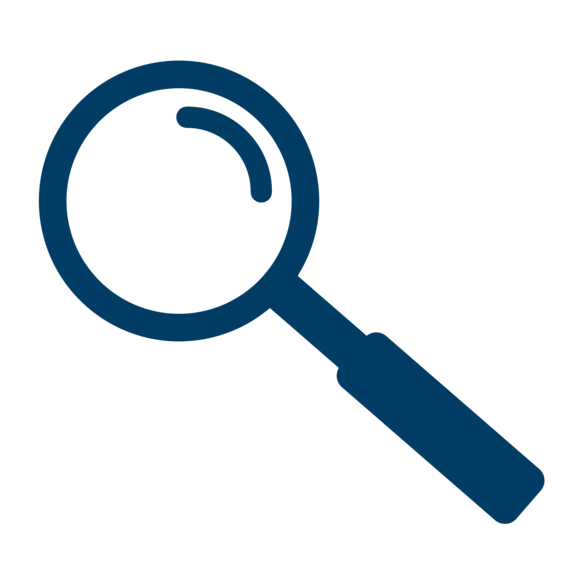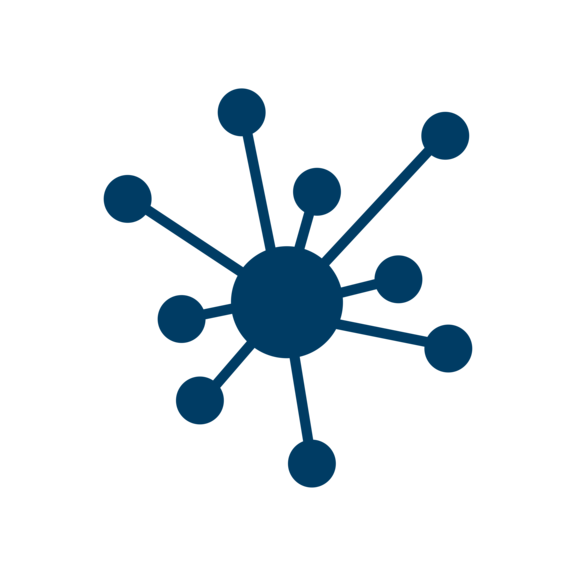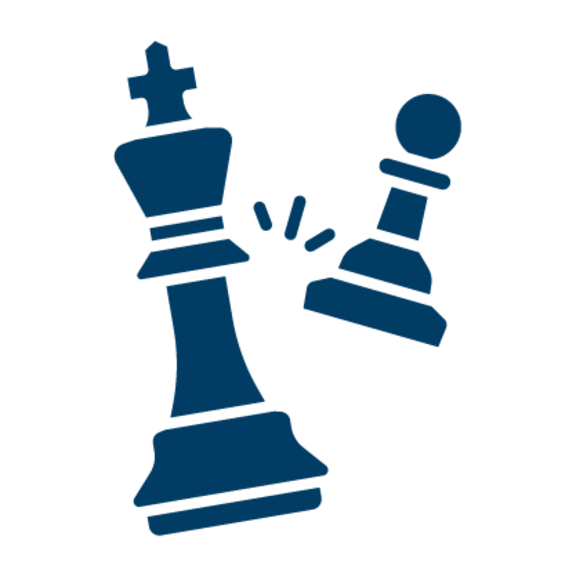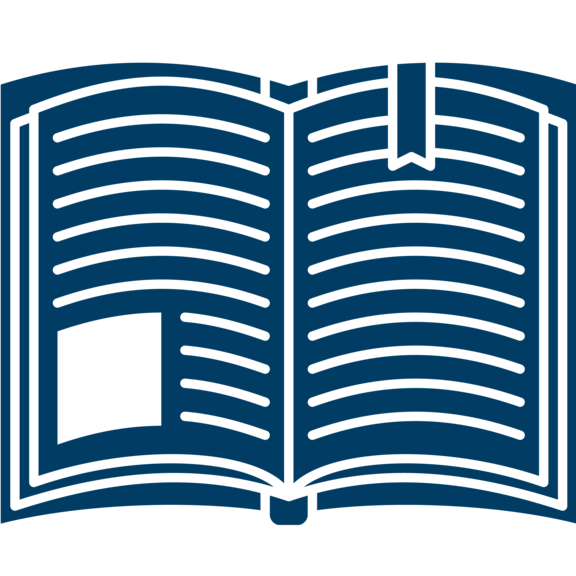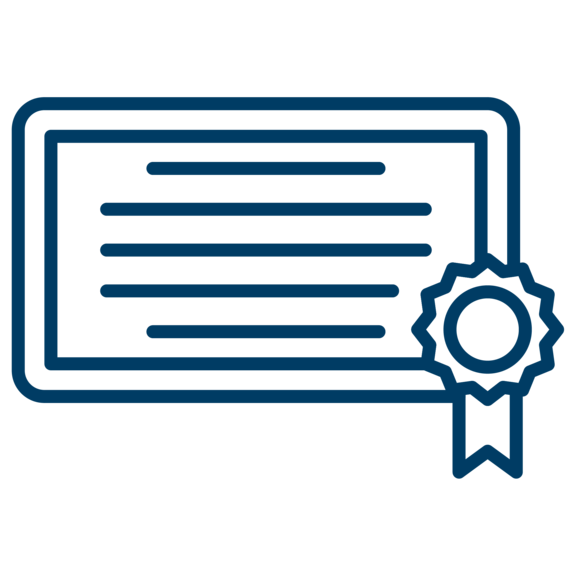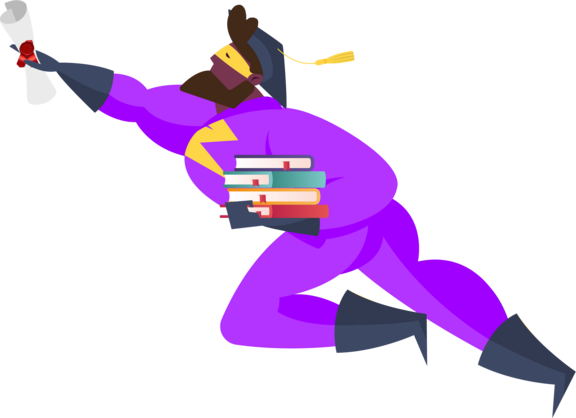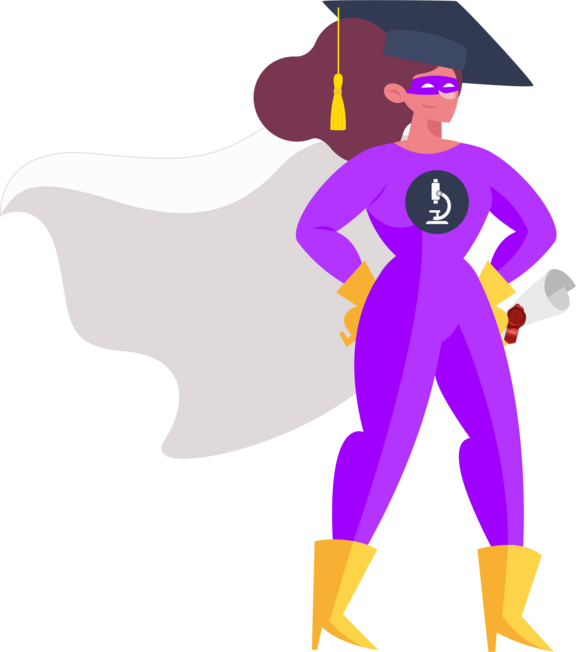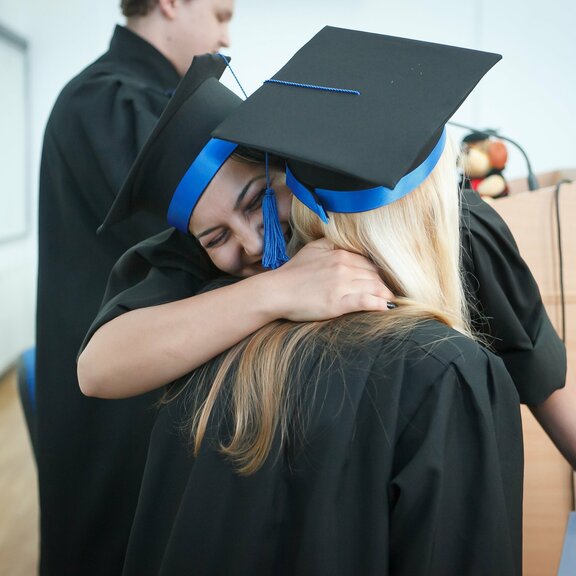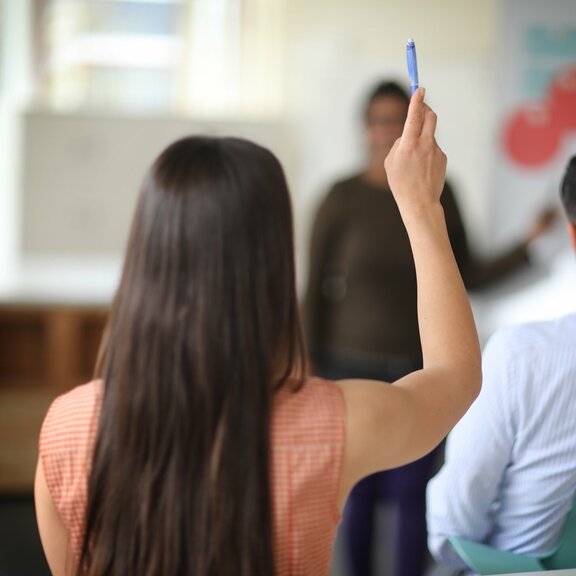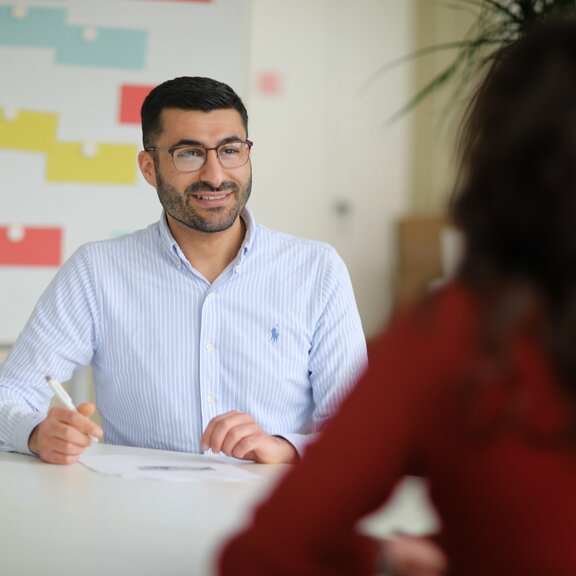Deutsch | English
The first mentoring program of our universities of applied sciences
Give your career a powerful KaMeHAW!
The doctoral period is an important and sensitive decision-making phase for all early career researchers. Cooling-out processes can occur during and after the doctorate, so that highly qualified and motivated scientists leave academia. To counteract this exit from science - primarily of FLINTA1 persons - the universities of applied sciences (HAWs) in Saxony-Anhalt offer the mentoring program KaMeHAW.
Participation is open and free of charge for all doctoral students and post-docs of the HAWs in Saxony-Anhalt.
Let the mentoring program guide you through important career decisions for one year.
Benefit from frequent and personal one-to-one meetings with an experienced mentor. Get support in developing your career and take advantage of the opportunity for strategic networking. A tailored supporting program offers you additional qualification and networking opportunities together with other early career researchers.
The mentoring program runs for one year. A maximum of 12 places are available.
Feel free to contact us!
If you have any questions or individual mentoring needs, on behalf of the HAWs please contact:
What does KaMeHAW offer you?
The mentoring program at the universities of applied sciences (HAWs) in Saxony-Anhalt supports early career researchers with special consideration of HAW specifics.
In bilateral mentoring meetings (one-to-one meetings) with experienced mentors from science and practice, you will work on individually agreed topics and goals. The exchange with mentors is intended to inform and encourage you with regard to your personal career path within or outside of academia.
The mentoring relationship aims to improve career-related networking and provide mental support along your career path.
The supporting program, which is specifically tailored to the needs of the cohort, additionally promotes your qualification, development and, last but not least, networking among each other. Take the opportunity to exchange ideas with peers and benefit from the experiences of other early career researchers.
Is KaMeHAW the right program for you?
This mentoring program is aimed at all interested early career researchers and especially at FLINTA1 persons. The focus is on individual resources, needs and perspectives, which are of central importance for a successful academic career.
Conditions of partizipation
If you would like to participate as a mentee in the career-mentoring program of the HAWs in Saxony-Anhalt, you should meet the following requirements.
- you are in an academic qualification phase (doctoral or post-doc phase)
- you are a member or graduate of an HAW or university, preferably in Saxony-Anhalt.
In addition, the following criteria are a basic prerequisite for a successfully certified completion of the mentoring program.
- independent identification and approach of a suitable mentor and active maintenance of the contact
- mandatory participation in the individually arranged mentoring meetings (on average once a month)
- mandatory participation in the supporting program (kick-off workshop, mid-term review meeting, and closing event).
Support for your participation
To make it easier for you to attend the events and mentoring meetings on-site, you can take advantage of the following support services if needed.
For participants (mentees or mentors) with childcare responsibilities, the family offices of the universities offer some support services. If you need more information, please visit the respective websites:
Merseburg University of Applied Sciences
https://www.hs-merseburg.de/familie (only available in German)
Anhalt University of Applied Sciences
https://www.hs-anhalt.de/hochschule-anhalt/service/familienfreundliche-hochschule.html (only available in German)
Harz University of Applied Sciences
https://www.hs-harz.de/familie (only available in German)
Magdeburg-Stendal University of Applied Sciences
https://www.h2.de/no_cache/en/the-university/beratung-und-services/family-and-social-services.html
Doctoral candidates can apply for a travel allowance of 50% of their travel costs for each attendance at events within the scope of the mentoring program. The application guidelines can be found at: https://www.hs-merseburg.de/fileadmin/Forschung/Forschung/Promovieren/Finanzierung/Leitfaden_fuer_die_Verteilung_von_Zuschuessen_Stand-21.04.2022.pdf (only available in German)
We set the framework for you!
The supporting program
The accompanying supporting program consists of two on-site and one online event.
It is held in German and serves the purpose of further qualification, personal development and, above all, your networking among each other. Therefore, use the events to exchange ideas with your peers, to gain professional methodological insights and to benefit from the experiences of other scientists in early career phases.
in Merseburg [mandatory]
Content and objective: The aim of the kick-off workshop is for the mentees to get to know each other and to identify their individual mentoring needs. Afterwards, you as a mentee will be able to find and approach suitable mentors for your requirements and goals on your own initiative.
Methodology: The workshop uses various interactive methods and provides recommendations.
approximately 3 hours, online [mandatory]
Content and Objective: Facilitated reflection on your past mentoring experiences and discussion of your wishes, expectations and (change) needs in the group.
Methodology: Exchange and input (if necessary collegial consultation)
in attendance [mandatory]
Content and objective: The final event pursues the goal of sustainable networking, gives hints for the continuation in the peer group and reflects on your networking and communication strategies.
The event ends with the final evaluation and the ceremonial presentation of the certificates of participation.
If you are interested, we would like you to enjoy the end of the mentoring program at an informal closing event.
It's your turn!
The mentoring relationship
The right match is everything!
We want to ensure successful and sustainable matching between mentee and mentor. Therefore, the identification and approach of suitable mentors is up to you as a mentee. The kick-off workshop, which takes place as part of the kick-off event, is designed to help you analyze your specific mentoring needs and to find and approach suitable mentors for your requirements and goals on your own initiative.
Who can be a mentor?
Mentors are professionally experienced persons in leading positions in science and practice (business, industry, social, cultural and educational sectors). They fulfill the following criteria:
- professionally experienced researchers (post-docs) and professors
- ideally at least 5 years of professional experience (in the HAW and/or university sector)
- national or (and if applicable) international origin
- members of the own university or external to the university
- Professional practitioners in leading position
- at least 5 years of professional experience
The mentors bring in their voluntary commitment as a personal requirement for participation in the mentoring program. They see themselves as multipliers who support early career researchers on their personal path. In this self-image, they accompany, advise, and encourage the mentee.
The mentoring meetings
The frequent meetings with your mentor - about once a month - form the core of the mentoring program. The meetings can be arranged individually by you. It is up to you whether you hold the meetings online, by telephone or in person. We recommend at least 3 meetings in person.
To ensure a successful mentoring relationship, a mentoring agreement is concluded between mentor and mentee. In this agreement, the concrete goal, possible wishes of the participants, mode, regularity and number of individual meetings are defined. A corresponding template is provided for this purpose.
1 The acronym FLINTA stands for Female, Lesbian, Intersex, Trans- and A-gender.
The mentoring program is organized jointly by all universities of applied sciences (HAWs) in Saxony-Anhalt.
Center of Advanced Scientific Education (CASE)
funded by


